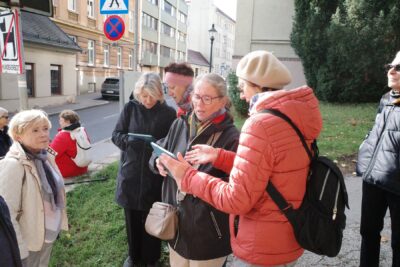
“I want Europe to strive for more by grasping the opportunities from the digital age within safe and ethical boundaries”, stated Ursula von der Leyen when she was candidate for President of the European Commission. Less than three months after she took office, the new digital package released by the European Commission is the translation of this commitment.
Recent Eurobarometer surveys published by the European Commission show how much citizens are concerned by the challenges arising from the use of artificial intelligence and the digitalisation of their daily lives. For example:
- 36% of respondents fear that artificial intelligence could cause discrimination in terms of age, gender, race or nationality, for example in taking decisions on recruitment, creditworthiness, etc. [Eurobarometer 92, Autumn 2019]
- Most respondents would be willing to share some of their personal information securely to improve medical research and care (43%) [Eurobarometer 503, Dec. 2019]
- 30% of respondents say they come across news or information that they believe misrepresents reality or is false (i.e. fake news) every day or almost every day and 25% say this occurs at least once a week [Eurobarometer 503, Dec. 2019]
- Seven in ten agree that they are sufficiently skilled in the use of digital technologies in their daily life, but only 48% of people aged 55+ and 41% of retired people [Eurobarometer 503, Dec. 2019]
Cherishing the hope that the EU will become a “leading role model for a society empowered by data to make better decisions in business and the public sector”, the European Commission unveiled its ambition towards a more digital Europe in a series of documents published on 19 February 2020::
- An overall communication entitled “Shaping Europe’s digital future”
- A communication dedicated to the issue of data
- A White Paper on Artificial Intelligence
Competitive and inclusive innovation: the tricky balance
These documents provide the vision and guidelines for the upcoming actions of the European Commission trying to reach an ambitious, but also precarious, balance between a technological innovation that creates jobs, serves people, supports inclusiveness, democracy and sustainability, while being at the centre of a fair and competitive economy. The objective is also clearly to profile the European Union as a leader at global level in this area, able to promote its values and principle through and in a digitalised world. This set of initiatives is an illustration of the willingness of the European Commission to better mainstream digital issues across areas and to enhance internal cooperation between its relevant services.
The EU calls for public feedback
Later this year, a Digital Services Act and a European Democracy Action Plan will be issued. Meanwhile, the White Paper on Artificial Intelligence is open for public consultation until 31 May 2020 and the Commission is also gathering feedback on its data strategy. In light of the input received, the Commission will further action to mainstream digital issues and link up between different dimensions.
What will we do?
AGE Secretariat will more specifically focus on the White Paper on Artificial Intelligence. On first reading, the document appears to be pretty much in line with the Human Centric Digital Manifesto for Europe developed last year under the leadership of OSEPI and BEUC and to which AGE contributed. It should also provide input to several events AGE will co-organise around the impact of digitalisation on older people’s rights in 2020.
We are also intend to contribute to the public consultation, notably to share our experience in different EU funded projects in which we are involved and to promote the report published in 2017 on the impact of assistive technologies and robots on older persons’ rights.
For more information:
- European Commission Digital Package (19 Feb. 2020)
- A Human centric digital manifesto for Europe
- Report UN Independent Expert on the rights of older persons: impact of assistive technologies and robots
EU funded projects related to new technologies in which AGE is involved:






